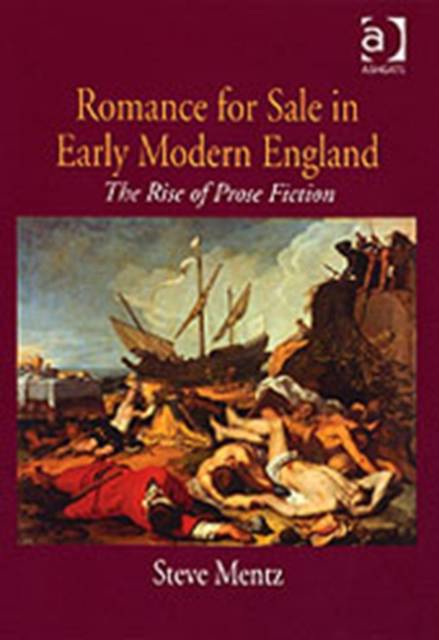
- Retrait gratuit dans votre magasin Club
- 7.000.000 titres dans notre catalogue
- Payer en toute sécurité
- Toujours un magasin près de chez vous
- Retrait gratuit dans votre magasin Club
- 7.000.0000 titres dans notre catalogue
- Payer en toute sécurité
- Toujours un magasin près de chez vous
Romance for Sale in Early Modern England
The Rise of Prose Fiction
Steve Mentz
Livre relié | Anglais
202,95 €
+ 405 points
Format
Description
The major claim made by this study is that early modern English prose fiction self-consciously invented a new form of literary culture in which professional writers created books to be printed and sold to anonymous readers. It further claims that this period's narrative innovations emerged not solely from changes in early modern culture like print and the book market, but also from the rediscovery of a forgotten late classical text from North Africa, Heliodorus's Aethiopian History. In making these claims, Steve Mentz provides a comprehensive historicist and formalist account of prose romance, the most important genre of Elizabethan fiction. He explores how authors and publishers of prose fiction in late sixteenth-century England produced books that combined traditional narrative forms with a dynamic new understanding of the relationship between text and audience. Though prose fiction would not dominate English literary culture until the eighteenth century, Mentz demonstrates that the form began to invent itself as a distinct literary kind in England nearly two centuries earlier. Examining the divergent but interlocking careers of Robert Greene, Sir Philip Sidney, Thomas Lodge, and Thomas Nashe, Mentz traces how through differing commitments to print culture and their respective engagements with Heliodoran romance, these authors helped make the genre of prose fiction culturally and economically viable in England. Mentz explores how the advent of print and the book market changed literary discourse, influencing new conceptions of what he calls 'middlebrow' narrative and new habits of reading and writing. This study draws together three important strains of current scholarly inquiry: the history of the book and print culture, the study of popular fiction, and the re-examination of genre and influence. It also connects early modern fiction with longer histories of prose fiction and the rise of the modern novel.
Spécifications
Parties prenantes
- Auteur(s) :
- Editeur:
Contenu
- Nombre de pages :
- 272
- Langue:
- Anglais
Caractéristiques
- EAN:
- 9780754654698
- Date de parution :
- 27-03-06
- Format:
- Livre relié
- Format numérique:
- Genaaid
- Dimensions :
- 156 mm x 233 mm
- Poids :
- 659 g

Les avis
Nous publions uniquement les avis qui respectent les conditions requises. Consultez nos conditions pour les avis.






